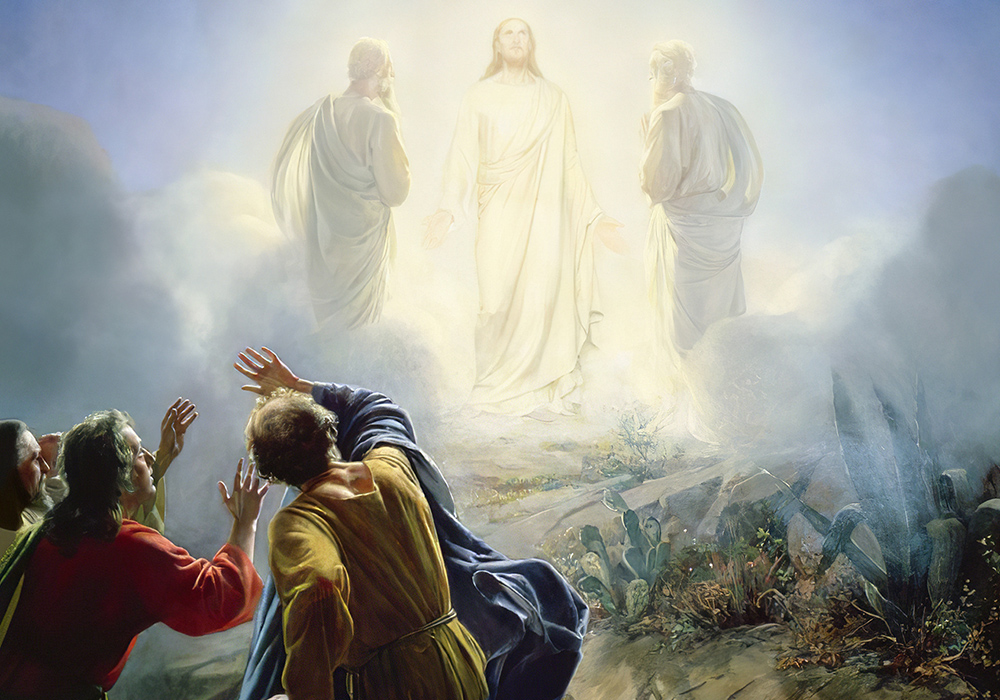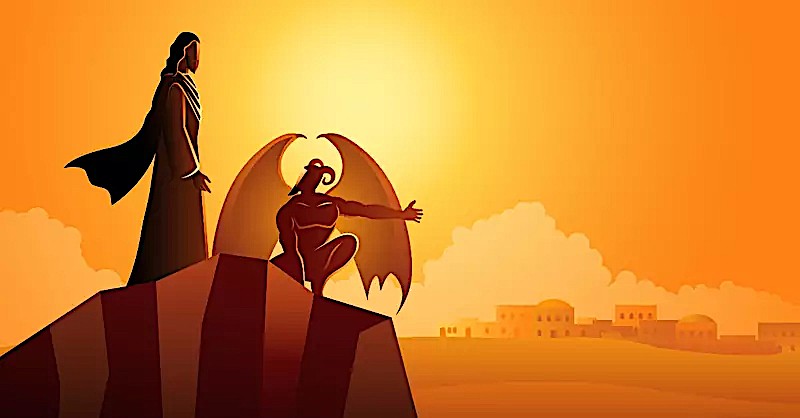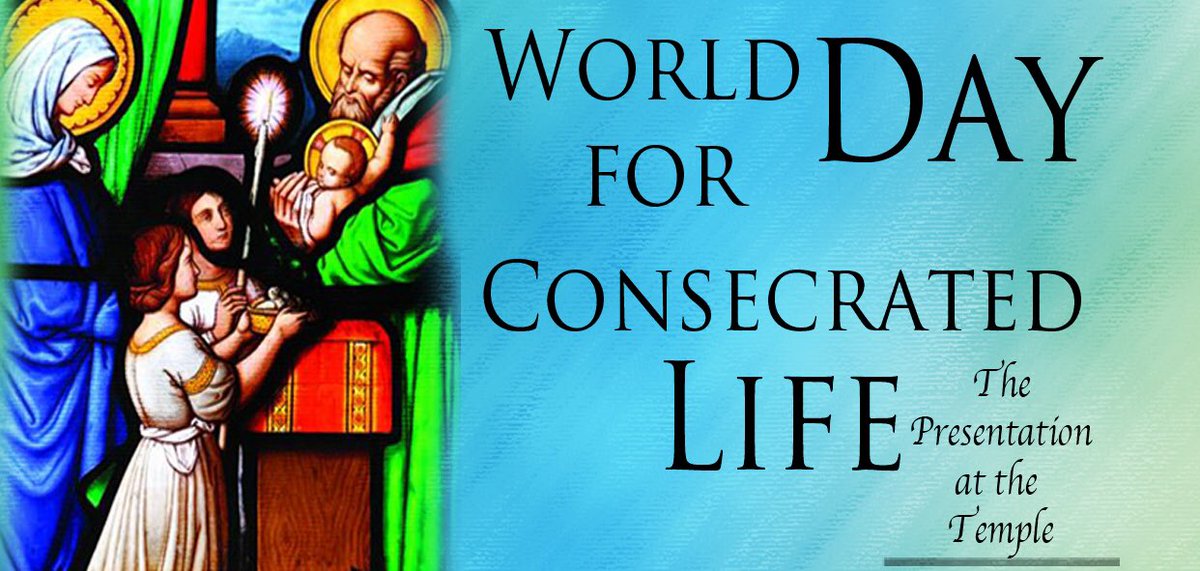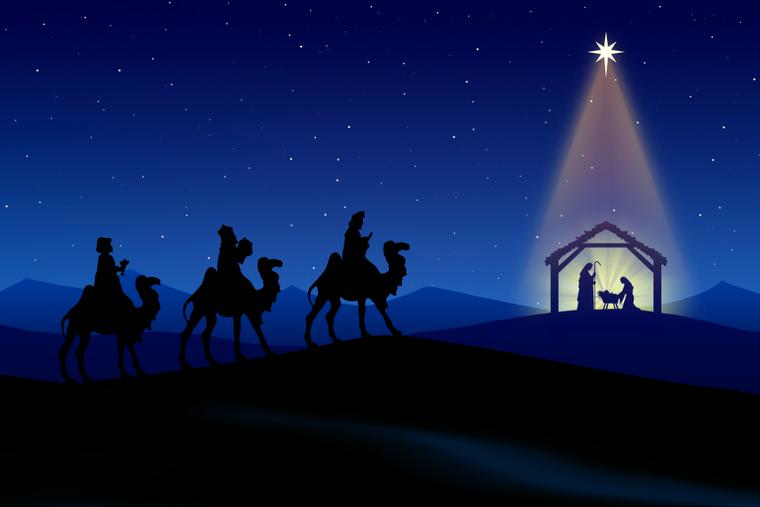YOU ARE THE TEMPLE OF THE HOLY SPIRIT
(Who/What is desecrating your temple?)
Ex 20:1-17 Or 20:1-3, 7-8, 12-17; 1 Cor 1:22-25; Jn 2:13-25
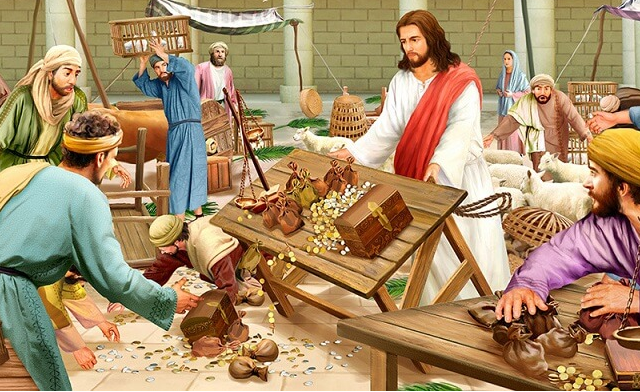
Fr. Nelson Lobo OFM Cap
- Passover in the Temple: The Passover of the Jews was near, and Jesus went up to Jerusalem. The Passover was the annual commemoration of the great deliverance of the people from the land of slavery (Ex. 12). A one-year-old male lamb without blemish was killed in the afternoon. That evening a detailed family celebration took place. Many oxen and sheep were offered up in sacrifice to God as the Festival of Unleavened Bread continued for seven more day (Ezek. 45:21). The temple area was always crowded during Passover with thousands of out-of-town pilgrims. The religious leaders crowded it even further by allowing money changers and merchants to set up booths in the court of the Gentiles. The temple tax had to be paid in local currency, so foreigners had to have their money ex-changed. The money changers often would charge exorbitant rates with commissions. The people were required to make substitutionary sacrifices as offerings for their sins. Because of the long journey, many could not bring animals. Some who brought animals would have them rejected for imperfections. So, animal merchants had a thriving business, a business they moved into the temple court yard. It was profitable to the sellers, and no doubt to the priests. And so, being convenient for all and profitable to many, the thing became a recognized institution. But the religious leaders did not seem to care that the court of the Gentiles was so full of merchants that people found it difficult to worship. And worship was the main purpose for visiting the temple.
- Purifying the Temple: The temple was firmly established, and at the centre of Jewish religious life. The people believed that the temple was the place where God in heaven met people on earth. It was a symbol of God’s relationship with His people, and it served as a constant reminder of God’s claim upon their lives. The temple took 46 years to build, and tradition surrounded it stretched back to the reigns of King David and his son, King Solomon. But something was desperately wrong. It had become something other than what God intended it to be. It had become corrupt! Therefore, we see that Jesus attacks the root of all evil, money (I Timothy 6:10). God’s temple was being misused by people who had turned it into a marketplace. They had forgotten, or didn’t care, that God’s house is a place of worship, not a business nor a place for making a profit. Many commentators see this as the fulfilment of Mal. 3:1ff. God’s promised purification of His temple. Jesus made a whip (of rope or reeds) and chased out the money changers. It was the first public appearance of Jesus before His nation as Messiah. He inaugurates His work by a cleansing and a claim. He cleansed the temple of distractors and distractions and claimed it His right by an act of authority that indicated Him to be the King of Israel and the Lord of the Temple.
III. Passion for the Temple: His disciples remembered that it was written, “Zeal for Your house will consume me.” The effect of Jesus’ courageous zeal on the disciples was to remind them of Ps. 69:9. The action of Jesus revealed the inward passion He had for God. It gave evidence of a consuming zeal for the house of God and ancient Scriptures found their fulfilment in what He did. Jesus exercised His right as the only begotten Son of God. He took the oppressive, disruptive, evil dealings in the temple as an insult against God, and thus He did not deal with it half-heartedly. He was consumed with righteous anger against such flagrant disrespect for God’s place of worship.
CONCLUSION: The cleansing of the temple in Jerusalem, is a picture of Christ entering into the human body and cleansing the soul so the body can become a temple of Christ. The first great cleansing in our lives is to attack the root of all evil, money (I Timothy 6:10). The real temple, the real place God wants to live, the real place of worship and prayer is the human heart. If Jesus took such zeal to cleanse a temporary earthly temple, imagine the zeal He experiences in giving God a proper place of worship in your life. He has a passion that your heart not be clutter with the world but be set aside as a place of prayer and worship. You see when Christ comes into the temple there can be no other gods. When Christ comes into the temple it is to be a place of prayer, of communion with God the Father. That and that alone is to be the priority and the purpose. So, when Christ comes into my temple – into my life – he comes to cleanse. He comes to cleanse me of my sin. He comes to cleanse me of personal ambition, passions and gods that take me away from God my father. He comes to overturn and drive out my money tables, all the places where I exchange the things of God for the lesser things of this world.
Jesus drove out those who desecrated the Temple. You are the temple of the Holy Spirit-Who is desecrating your temple? What tables in your temple need overturned and cleansed? Remember the purpose of cleansing – to bring healing and restoration. When Christ comes into my life to cleanse it is to restore me to wholeness of life. It is not just to overturn tables – it has a purpose to make my temple/life a place of prayer and communion with the Father. Will I be like the religious leaders annoyed and offended at Christ’s cleansing?
“If Christ showed such zeal in cleansing an earthly temple, He will use zeal in cleansing another temple, the believer’s life, also”.

